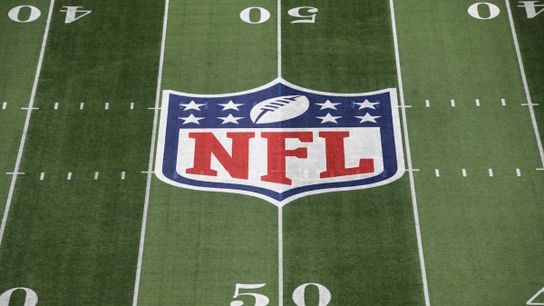The NFL signed a new collective bargaining agreement last month, setting the stage for major changes to the league's structure moving forward.
As Peter King outlines in this Football Morning in Americacolumn on Monday, the league is expected to officially begin its 17-game regular season starting this fall. This is not necessarily news, it's been foreshadowed for years and was more or less announced in December. What's different about King's reporting is now we have some details.
Once the move becomes official, it will mark the first time the NFL has changed its regular season since 1978, when the season grew from 14 to 16 games. The NFL expanded the playoff bracket this past season from 12 teams to 14, the first such change since 1990.
In total, the changes will increase the NFL season from 267 games, regular season and playoffs, to 285.
The increases were necessary to accomplish owners' primary objective: shaking down the networks for every penny they can find.
John Ourand reported for Sports Business Journal that the next rounds of media rights agreements are rounding into shape and close to official. The changes for consumers will be minimal: the networks will all keep their packages with the exception of Thursday nights moving from Fox to Amazon Prime (they'll also air on NFL Network, as has always been the case) and ABC will get the Super Bowl once every four years. To keep the status quo, the Big Four networks -- Fox, CBS, NBC and ABC/ESPN -- are expected to fork over a collective $2+ billion per year, per network.
If you want to think like an NFL owner, the process goes like this: Hit the players union hard and early so you can lock down a favorable, long-term CBA. Once that's done, use the guarantee of labor peace plus a small increase in inventory to get your TV partners to pay close to double what they were already paying for the same product.
The NFL can use those wise-guy tactics because they have all the leverage: live football is the only entertainment product the entire country still watches at the same time. Thirty-three of the top 50 US TV broadcasts in 2020 were NFL games, and 10 of the remaining 17 were once-every-four-years political events.
With a 17th game all but certainly coming this fall, the matter then becomes how to adjust the schedule.
King reports the league will not bump the regular season forward and will not add an off week, simply pushing the regular season to 18 weeks. Pushing everything back a week allows the NFL to more advantageously stage Wild Card weekend. Rather than cramming in three games on Saturday and three on Sunday, the league can eliminate the early-afternoon Saturday game while keeping the late-afternoon and prime time windows, keep all three Sunday games, and then play the sixth Wild Card game on Monday night.
This normally never would've been an option, since the College Football Playoff title game typically falls on the second Monday of January -- typically, the Monday after Wild Card weekend. But by pushing the Wild Card round to the third weekend of January, the league can move off a TV window where audiences aren't accustomed to watching the NFL (noon on Saturday) to Monday night.
All of this sounds well and good -- more money for the league and its teams, more football on TV for you and me -- but I do want you to alert everyone to one potential side affect that could have negative consequences on the home front. If the league indeed pushes Wild Card weekend back a week, as King says it will, it'll have to push every round back a week. This means the Super Bowl moves from the first Sunday in February to the second. In 2022, a Feb. 6 Super Bowl becomes a Feb. 13 Super Bowl. Are you picking up what I'm putting down yet?
This, dear reader, means we could have Valentine's Day Super Bowls once every seven years or so. Don't say your friends at The Scoop didn't warn you.
